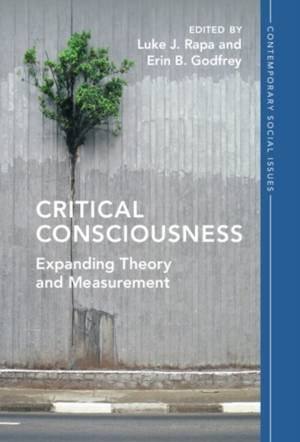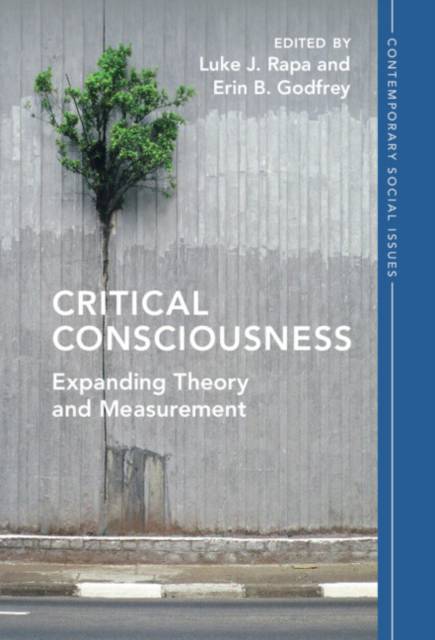
- Afhalen na 1 uur in een winkel met voorraad
- Gratis thuislevering in België vanaf € 30
- Ruim aanbod met 7 miljoen producten
- Afhalen na 1 uur in een winkel met voorraad
- Gratis thuislevering in België vanaf € 30
- Ruim aanbod met 7 miljoen producten
Zoeken
Critical Consciousness
Expanding Theory and Measurement
€ 151,45
+ 302 punten
Omschrijving
Critical consciousness represents the analysis of inequitable social conditions, the motivation to effect change, and the action taken to redress perceived inequities. Scholarship and practice in the last two decades have highlighted critical consciousness as a key developmental competency for those experiencing marginalization and as a pathway for navigating and resisting oppression. This competency is more urgent than ever given the current sociopolitical moment, in which longstanding inequity, bias, discrimination, and competing ideologies are amplified. This volume assembles leading scholars to address some of the field's most urgent questions: How does critical consciousness develop? What theories can be used to complement and enrich our understanding of the operation of critical consciousness? How might new directions in theory and measurement further enhance what is known about critical consciousness? It offers cutting-edge ideas and answers to these questions that are of critical importance to deepen our critical consciousness theory and measurement.
Specificaties
Betrokkenen
- Uitgeverij:
Inhoud
- Aantal bladzijden:
- 344
- Taal:
- Engels
- Reeks:
Eigenschappen
- Productcode (EAN):
- 9781009153775
- Verschijningsdatum:
- 27/04/2023
- Uitvoering:
- Hardcover
- Formaat:
- Genaaid
- Afmetingen:
- 152 mm x 229 mm
- Gewicht:
- 607 g

Alleen bij Standaard Boekhandel
+ 302 punten op je klantenkaart van Standaard Boekhandel
Beoordelingen
We publiceren alleen reviews die voldoen aan de voorwaarden voor reviews. Bekijk onze voorwaarden voor reviews.










